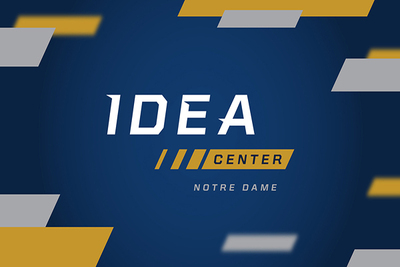
One of the IDEA Center at the University of Notre Dame’s primary missions is to commercialize the inventions that emerge from faculty research. The commercialization process moves faculty discoveries into the marketplace and into the hands of those who need them. An essential component of this is licensing inventions to outside companies. During fiscal year 2022, 19 technologies developed by Notre Dame faculty were licensed to companies. These licenses were executed through a record-breaking 14 license agreements, exceeding the previous record of 13 set in 2018. Eleven of the 19 technologies were licensed to new Notre Dame startups, six were licensed to outside companies and two were licensed to previously announced Notre Dame startups.
“We’re thrilled with the increase in the number of Notre Dame technologies being licensed to outside companies,” said Kelley Rich, Notre Dame’s interim vice president and associate provost for innovation. “Each executed agreement represents at least one novel faculty idea taking a great leap forward in terms of it being able to reach the marketplace and ultimately change people’s lives.”
Ten of the 19 licensed Notre Dame technologies were developed by College of Science faculty, eight were developed by College of Engineering faculty and one was developed by College of Arts and Letters faculty.
Two of the technologies licensed to outside companies were licensed largely because of IN-PART, a technology marketing service that connects academia and industry through an online matchmaking platform. The additional four technologies licensed to outside companies came about through relationship building and existing partnerships.
“Our recent licensing successes could not have happened without the amazing efforts of our talented faculty,” said Kate Richards, director of intellectual property and contracts at the IDEA Center. “Their willingness to connect with industry partners, take time out of their day to share data and invented materials, assist in licensing discussions and even contribute to the creation of startup companies has been truly extraordinary.”
Richards, who manages company outreach, license negotiations and contract drafting at the IDEA Center, also attributes the record-breaking number of licenses to the overall increase in research award funding at Notre Dame. “As the University continues its remarkable success in significantly increasing its research awards each year, which equaled $244 million in fiscal year 2022, more licenses should follow because faculty inventions generally come from funded research.”
Richards has plans to build on 2022’s success by continuing the IDEA Center’s partnership with IN-PART, working even more closely with faculty, performing direct marketing campaigns on select faculty inventions and launching a new online marketplace for Notre Dame’s faculty-based intellectual property.
To learn more about the IDEA Center and the Commercialization Engine, visit https://ideacenter.nd.edu/commercialization-engine/.